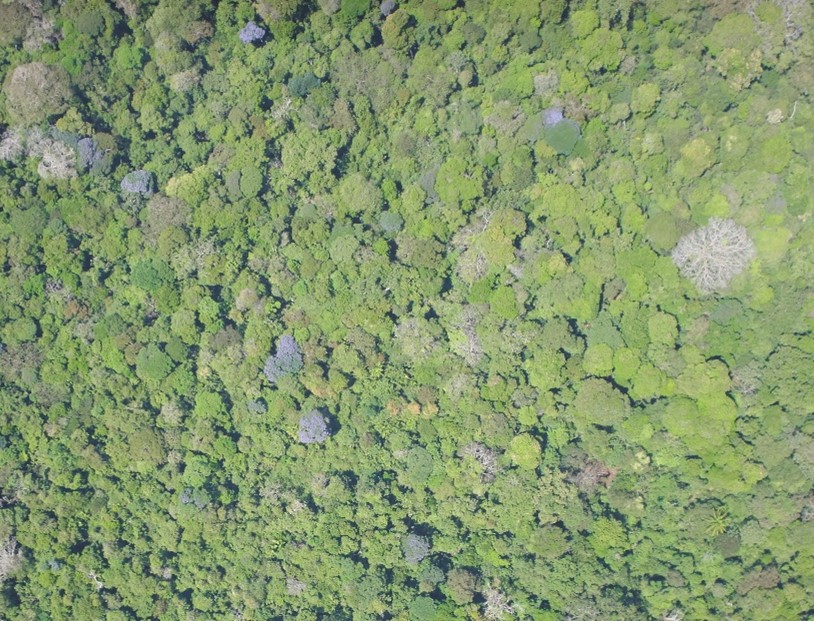Lead Supervisor: Sofia Gripenberg, School of Biological Sciences, University of Reading
Email: s.gripenberg@reading.ac.uk
Co-supervisors: Owen Lewis, Department of Biology, University of Oxford; Paul-Camilo Zalamea, Department of Integrated Biology, University of South Florida, USA
What allows species to coexist in ecological communities? This question has preoccupied generations of ecologists. A potentially important mechanism is conspecific negative density-dependence (CNDD) – a phenomenon whereby individuals do worse when they are surrounded by members of their own species rather than by members of other species. This negative feedback mechanism has received substantial attention in tropical forest systems, where it is thought to be responsible for maintaining the astonishingly high local tree diversity found at many sites. CNDD is also known to operate in other systems, including temperate forests and grasslands.
Several factors, including host-specific pests and diseases, can generate CNDD in plant communities. A commonly reported phenomenon is the build-up of host-specific pathogens (many of them soil-borne) and insect pests around individual adult plants (e.g. trees) or clusters of plants, which suppresses seed survival and seedling recruitment close to conspecific adults or in areas of high conspecific density. Although this type of negative feedback mechanism has been documented in many species, there are still important gaps in our understanding of how they work in natural systems. This includes a lack of information on the spatial, temporal, and phylogenetic scales across which enemy-mediated negative feedbacks operate.
In this project, the student will conduct experimental and observational studies to investigate the spatial and temporal dynamics of interactions between seeds and seed enemies (insects, pathogens) and the consequences of enemy-mediated density-dependence in seed mortality for plant diversity. A detailed research plan will be developed together with the student, but the project will target three broad questions:
Q1. At what spatial and temporal scales do insect seed predators and soil-borne pathogens cause density-dependent seed mortality?
Q2. Do patterns of enemy-inflicted seed mortality lead to higher species diversity of seedlings?
Q3. Do seed enemies structure the composition of species through density-dependence across species (a phenomenon known as ‘apparent competition’)?
Work related to Q1 will focus on the survival of seeds of small-seeded ‘pioneer’ tree species in the soil seed bank and will be conducted on Barro Colorado Island in Panama, where the supervisors have ongoing research projects. Q2 and Q3 will be addressed using manipulative experiments designed to address the patterns and consequences of enemy-mediated seed mortality in grassland plant species in the UK. Depending on the interests of the student, additional subprojects may be possible, for example assessing the sensitivity of seed-enemy interactions to environmental change.

A section of the forest canopy of Barro Colorado Island (Panama), captured by drone flights conducted in February 2023. The purple tree crowns are flowering Jacaranda copaia trees, one of the likely study species for the project.
Training Opportunities
The student will receive training in multiple ecological subdisciplines (plant ecology, insect ecology, seed ecology, population and community ecology) and research skills including experimental design, ecological field techniques, and statistical analysis. During part of the thesis work, the student will conduct field work in Panama where they will be affiliated with the Smithsonian Tropical Research Institute (STRI). The student will have access to the specialist and generic skills and training activities made available to PhD students by the Reading Researcher Development Programme (RRDP) including statistical methods, conference presentation and writing skills.
Student Profile
The project is suitable for a student with a degree in biological or environmental sciences or a related discipline. We are looking for a student with good oral and written communication skills who is keen to engage in field-based research. Ideally, the candidate will have strong numerical literacy. Experience of ecological field research involving plants, insects, or soil microbes would be an advantage.

